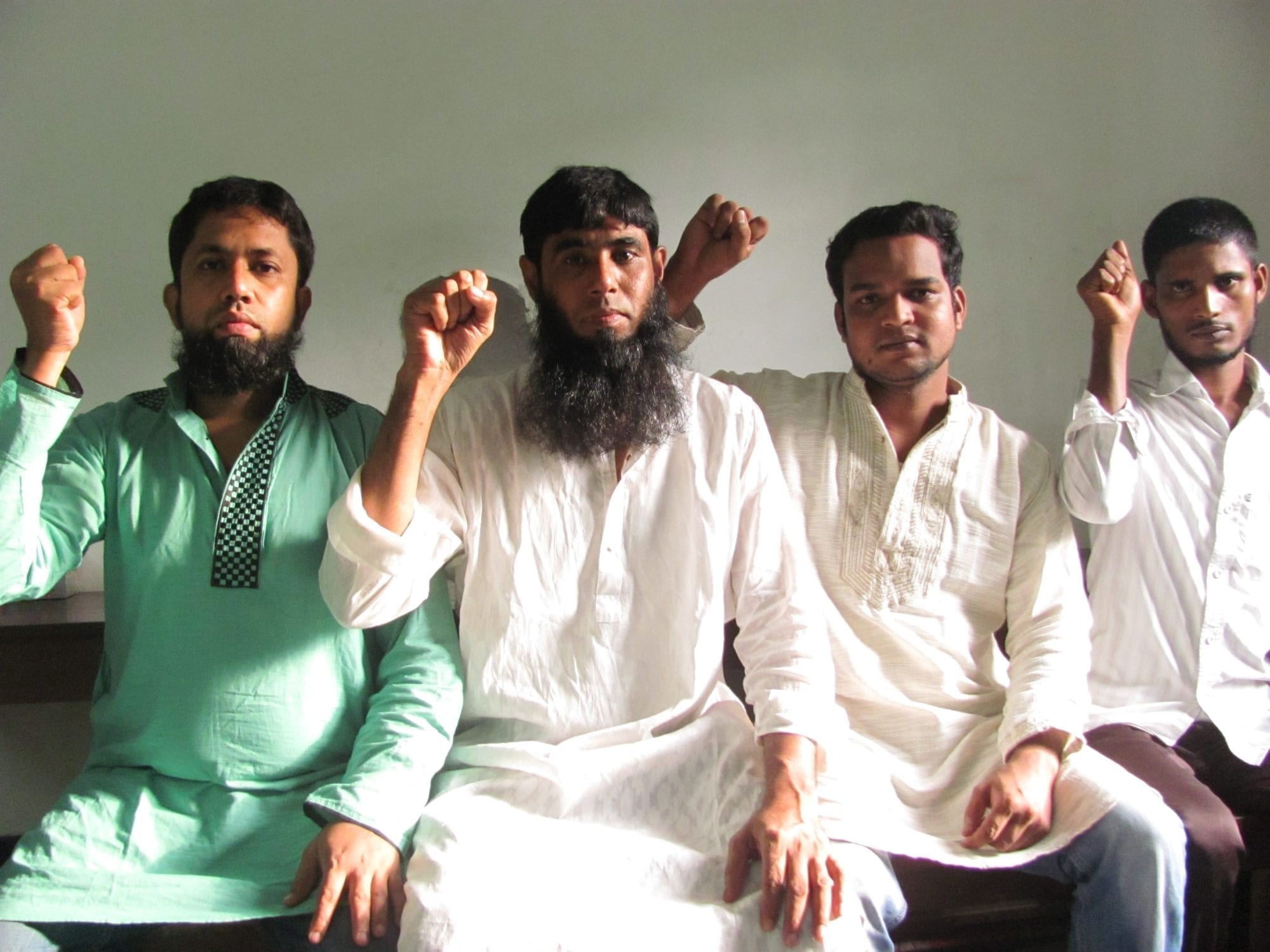Garment workers at Sin Sin Poly factory in Bangladesh’s export processing zone (EPZ) won increased pay and leave benefits in August after forming a workers’ welfare association and successfully negotiating with management.
Mehedi Hasan, 35, was among workers helping form the association. When Mehedi began work at the factory, where he was hired to make plastic and polyethlene bags, he says instead he was asked to perform janitorial duties.
“That disappoints me a lot. Though I was appointed as a factory worker, I was asked to clean the factory. There were other problems as well,” he says.
“From that day, I promised to myself that I would work for a change in the factory,” Mehedi added.
Staying Strong to Form Their Association
Mehedi joined with Dalim Sarkar, 30, Russel Sarkar, 28, and Mohammad Alamin, 25, and other workers to form a Workers’ Welfare Association to represent the 100 workers in the factory, formerly called Ju Hyung Co. Ltd.
“The initial stage (involved much) struggling,” says Dalim Sarkar, association secretary. “We had to work hard to convince other workers about the benefit of a (Workers’ Welfare Association).”
“We are now getting increased money for our meal and transportation,” said Alamin.
Garment worker Russel Sarkar said that under the agreement, workers also will receive paid leave for the first time. Some workers have begun to receive performance promotions, a practice the company had ended.
In Bangladesh’s ready-made garment industries, workers often face abusive employers, low pay and unsafe working conditions. EPZ workers cannot form unions. However, in 2004, Bangladesh passed a law passed enabling workers in the special zones to form workers’ associations.
Associations are permitted to represent workers in disputes and grievances, negotiate collective bargaining contracts and collect membership dues, but cannot affiliate with labor unions, nongovernmental organizations or political organizations outside of the EPZ.
“Now other factories in the EPZs are inspired by us,” Dalim says. “If there is a federation in EPZ, our fight for workers’ rights will be easier,” he added.
Workers Associations Spreading
Despite obstacles, more workers are forming associations in factories throughout Bangladesh’s export processing zones. Associations now represent workers at 53 of the 102 factories in the Dhaka EPZ alone.
Bangladesh derives 20 percent of its income from exports created in the EPZs, which are industrial areas that offer special incentives to foreign investors like low taxes, lax environmental regulations and low labor costs. Some 405,166 workers, the vast majority of them women, work in 437 factories in Bangladesh’s eight EPZs.
The Solidarity Center holds trainings for garment workers on labor law and union rights and strategic planning and leadership development. The Solidarity Center also mentors union organizers and workers welfare association leaders and helps workers resolve workplace issues.

